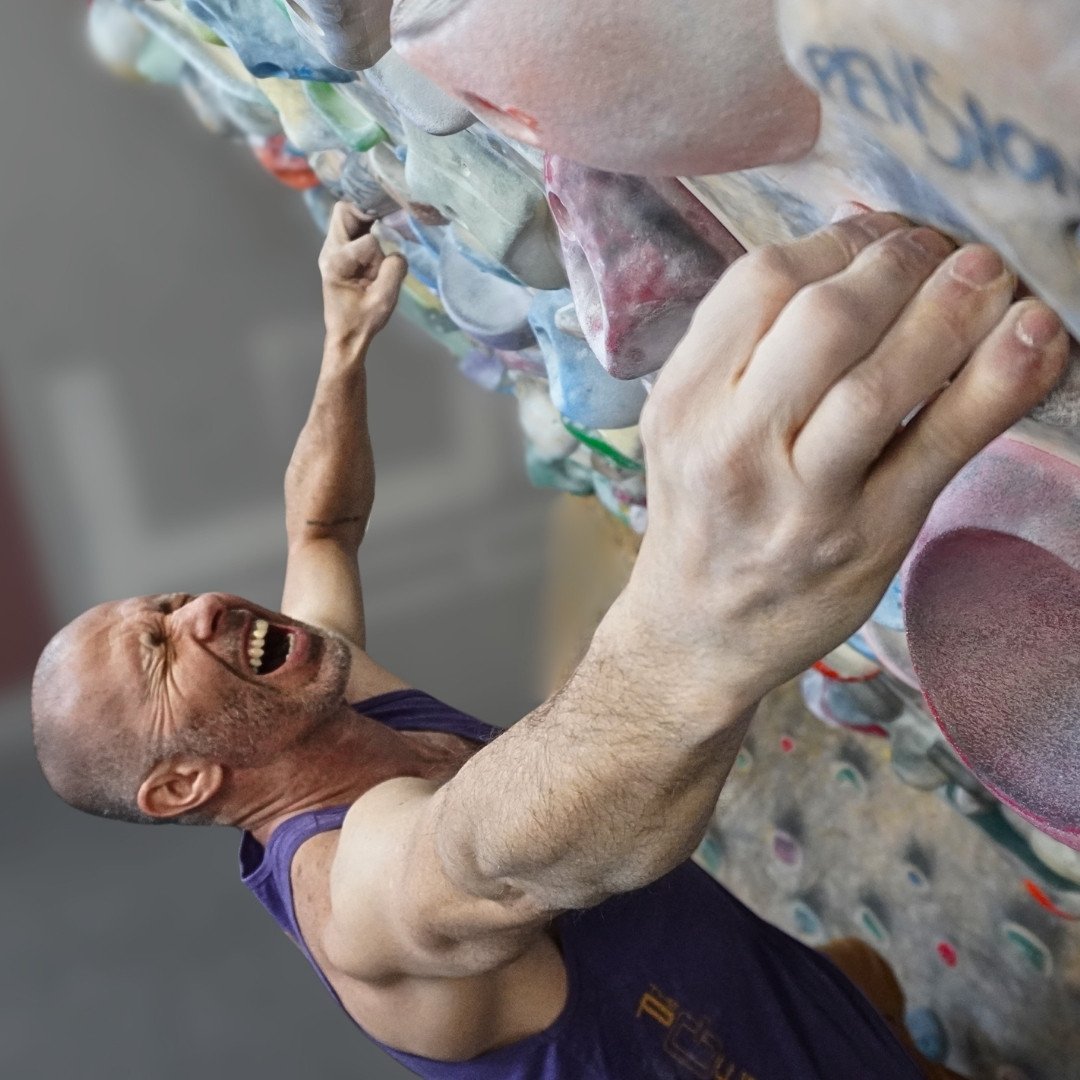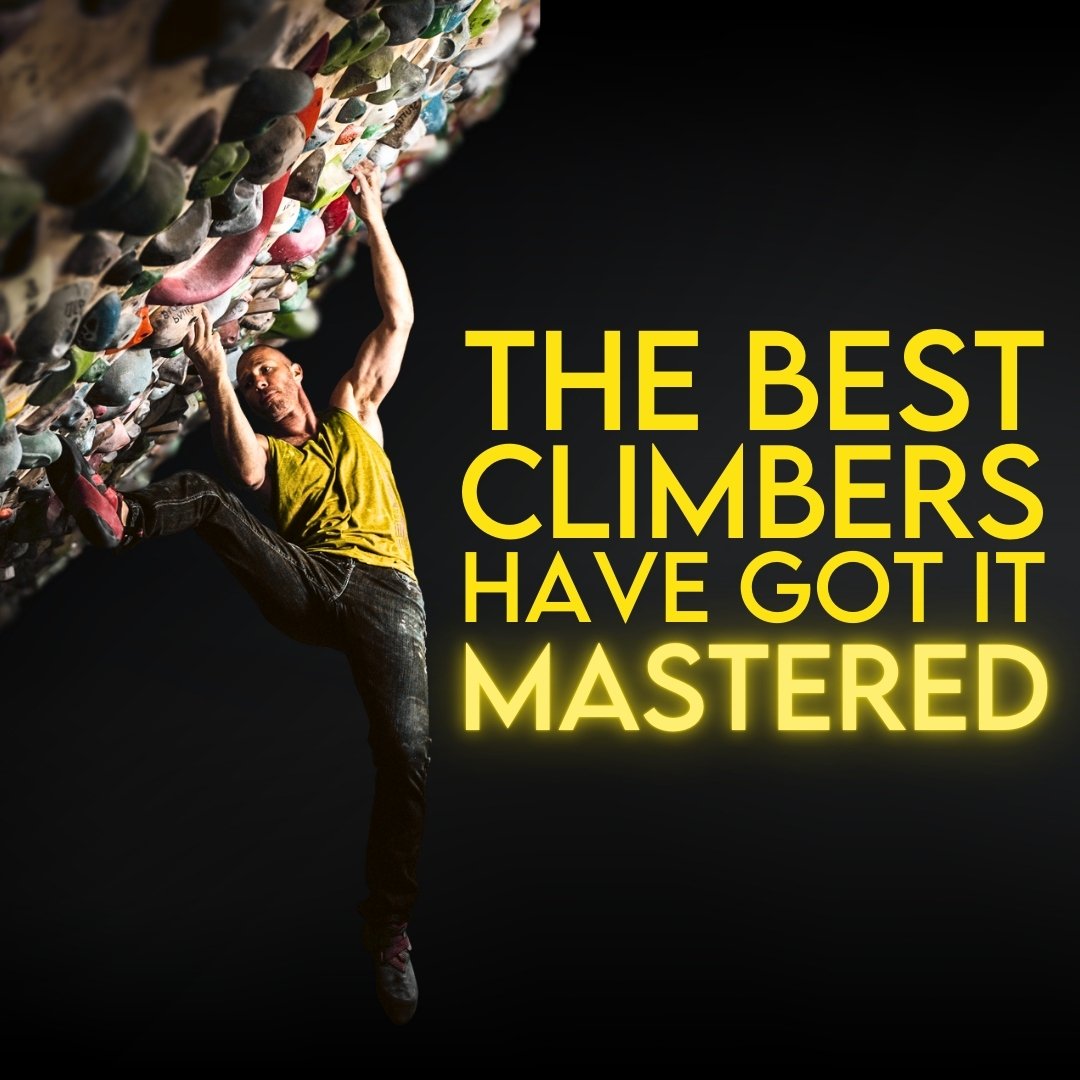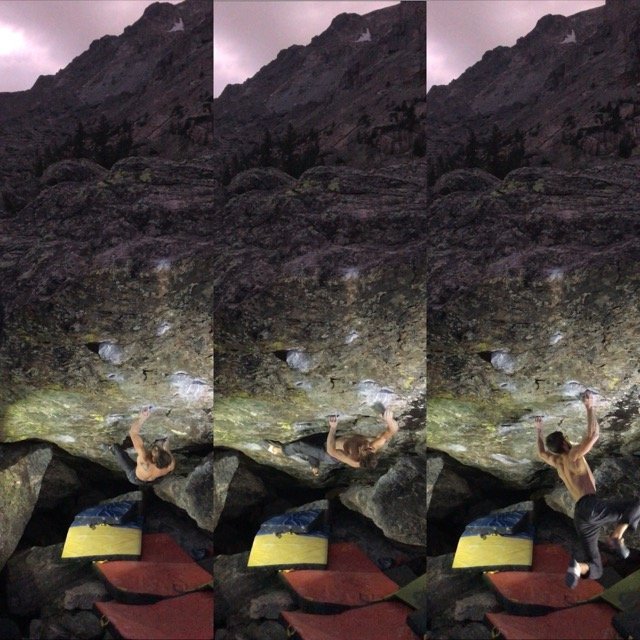When Effort Isn’t the Issue
Whenever we struggle to reach our goals, many of us have the same knee-jerk reaction—knuckle down. Why does this have to be so hard? Can’t we just do this thing that we say we want? Clearly we haven’t been taking things seriously enough and what we need is more willpower. If we put in more time and effort maybe that would fix everything. How often does that end up working as a long-term solution, though?
What if, instead of berating yourself for not having enough willpower, you considered how to reduce the friction in your life that’s making your habits so hard to stick to? Do you really have terrible willpower or are you surrounded by distractions and obstacles?

Do you actually struggle to stick with training plans or is it that you keep trying to follow overly complicated training methods? Do you want stronger hands? Pick a hangboard protocol that’s too easy to fail. The most simple finger strength program will still bring you great results… if you do it.
What if you left your phone in your gym bag instead of bringing it along when you climb? Would that help you be more focused when you climb?
Are you terrible about doing mobility regularly even though you’ve known for years that it would level up your climbing? Do it first thing every session before you climb. Climbing afterwards will feel like a reward, and you won’t have to muster up much motivation to do it first thing each session.
Do you keep saying that you’ll end your days at the crag with some easy pitches to build your endurance, but never follow through? Leave your draws hanging on your last warm up so that you have to come back and clean them. Take the decision out of your hands while the day is still early.
If you find yourself spending half of your board sessions doom scrolling through the app trying to find the perfect problem, start picking out five or six hard boulders before you get to the gym and only allow yourself to try those. When it’s time to try hard you won’t have to spend any time searching. This guarantees that you spend more of your time and focus on climbing. You’re also more likely to pick problems that actually address your weaknesses if you pick them ahead of time rather than choosing them in the moment.
If it feels hard to motivate yourself for sessions day after day, what if you started training and climbing with a partner or at a gym with a motivated crew?
More often than you might think, it isn’t that you are lazy or incapable of sticking to a plan, it’s that there are some road blocks that keep getting in your way. Take some time to find where you can reduce the friction surrounding the good habits that you want, and you might surprise yourself with how much easier it is to accomplish your goals.
What are the obstacles or areas of friction that are regularly getting in your way?

Toe-hooking can seem more like sorcery than other techniques, but you’re probably just going about it the wrong way.
Implementing this one simple thing can result in big performance gains in your climbing, no matter what level you’re at.
Despite being constantly present and often the reason we fail, Rhythm is the most underrated of the Atomic Elements of Climbing Movement.
Long-time friends Nate and Ravioli Biceps discuss lessons they’ve pulled from video gaming that can help inform our climbing.
There’s A LOT of great information out there on how to climb harder. But it’s tough to sort through…
Short climbers are good at getting scrunchy, and tall climbers are good at climbing extended, right? Wrong.
One of the most common places things start to fall apart is at the very beginning of the move.
We know spending time on a finishing link is smart tactics for hard climbs. So why not apply the same concept to individual moves?
Learning when and how to compensate for a weakness is a skill. And skills need to be practiced.
Lowball boulders, while not as proud, can still teach us new movement, new ways to utilize tension, and force us into finding new techniques.
I never thought I’d be recommending this, but some of y’all should be putting less effort into becoming technically better climbers.
Training principles are important, but when they creep into performance, your climbing will suffer. Nearly every time.
We have become collectors of dots. But there’s one major thing that happens when we connect dots that is entirely lost in mass dot collection: critical thinking.
Do you really have terrible willpower? Or are you surrounded by distractions and obstacles?
You have a climbing trip coming up. The rock is different. The style is different. Your pre-trip time is short and the number of days you’ll be climbing, even shorter…
Giving artificially low grades to climbs increases their perceived value for our training and development. The more something is mis-graded the more we naturally want to prioritize it.
Discussion around grades can be so polarizing that many of us avoid the topic.
Climbing starts off as this self-feeding cycle that has you wishing you could climb seven days a week. What happens when this cycle stops bringing improvement though?
Use strength to leverage every other aspect of your climbing, not replace them.
If everything you do is a finger workout, then when do your hands get a chance to recover?
There is a common theme between a grilled cheese sandwich and good training advice.
The more accurately we define our problems, the more approachable it will feel to find solutions.






























There are 3 types of climbers… but one of them is ALWAYS better.